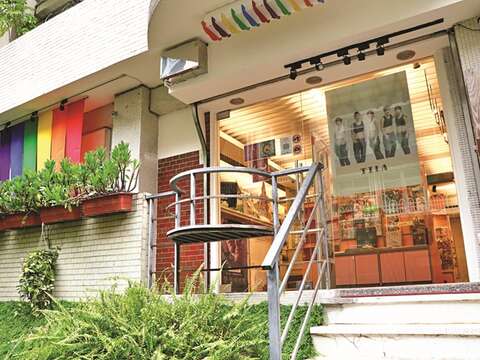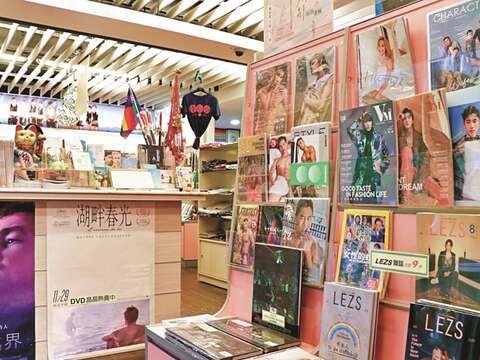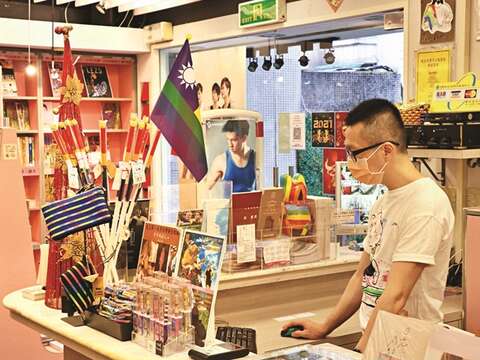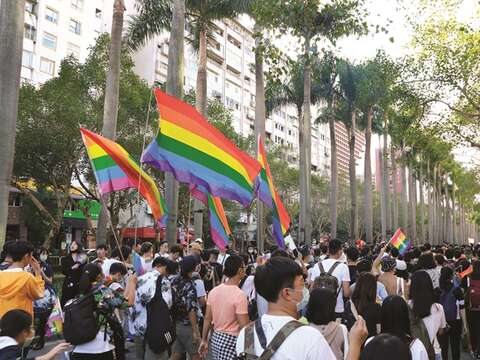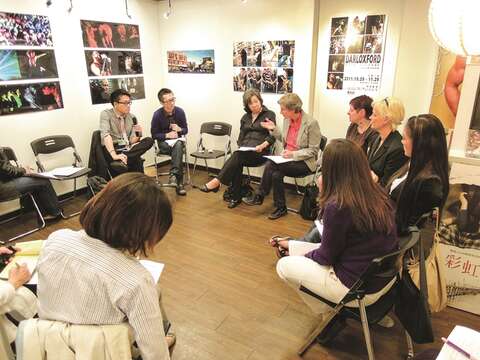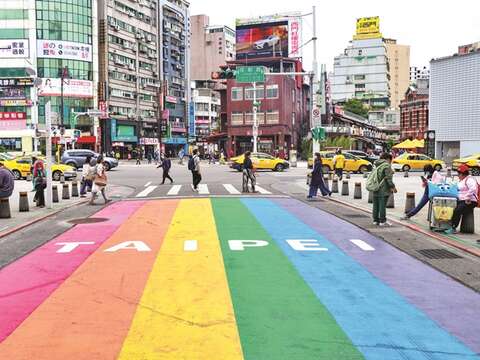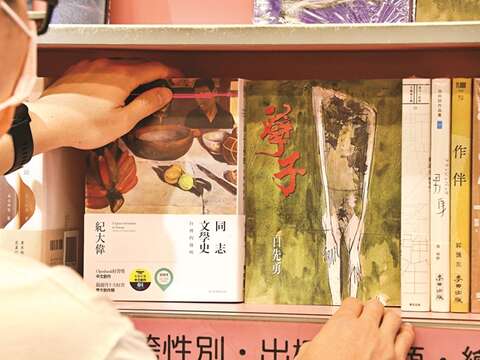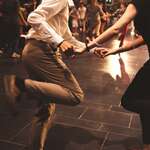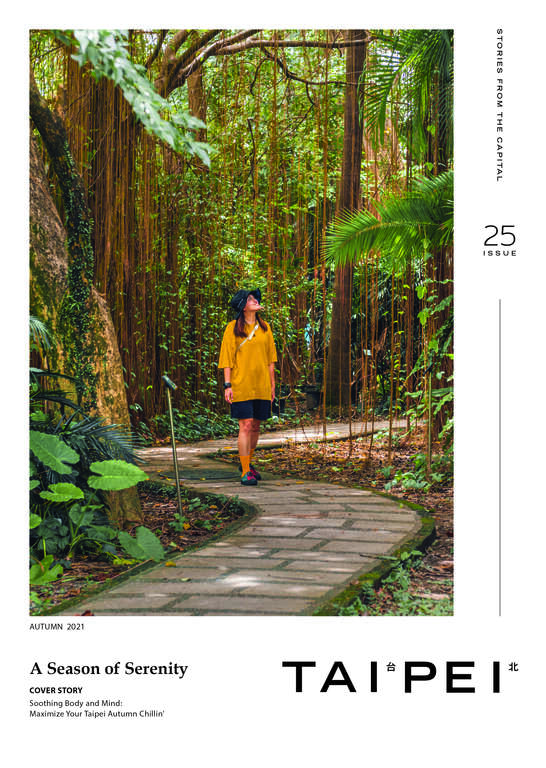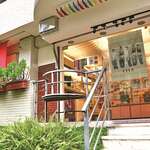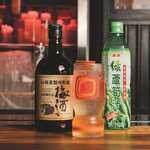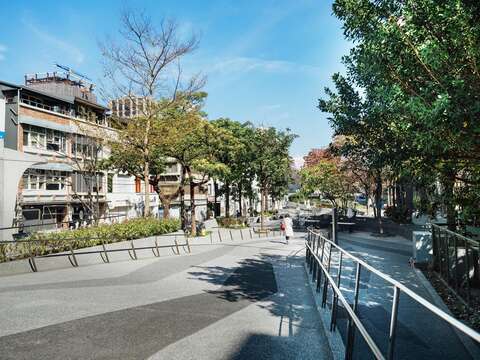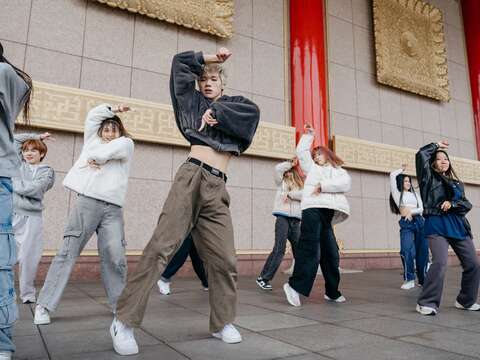Post date:2021-09-11
2275
TAIPEI #25 (2021 Autumn)
The First LGBTQIA+ Bookstore in the Chinese-Speaking World
Author Richard Williams
Photographer GinGin Store, Taiwan Scene
Behind the Rainbow
Tucked in a small alleyway in the capital of Taiwan is GinGin Store (晶晶書庫), the first LGBTQIA+ bookstore in the Chinese-speaking world. It is hard to exaggerate the impact the store, also serving as a gallery today, has had over its 22-year history. It has built itself not only as a buzzing hub for LGBTQIA+ books and culture, but as a center for activism and an integral part of Taiwan's rapid gains in equality.
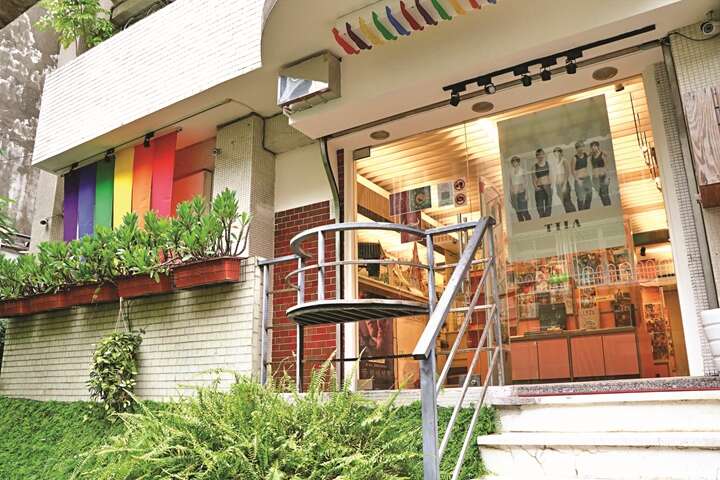 ▲Standing in Taipei for more than 20 years, GinGin Store always welcomes clients from all over the world with its open courtyard.
▲Standing in Taipei for more than 20 years, GinGin Store always welcomes clients from all over the world with its open courtyard.
As Taipei cements itself as the capital of LGBTQIA+ advancement in Asia, GinGin has become a must-visit spot for travelers, particularly when they flock to the city for the most notable LGBTQIA+ event in Asia, Taiwan LGBT Pride (台灣同志遊行).
When the GinGin team set about establishing a new space for people from across the gender and sexuality spectrum in Taipei, they hit upon Gongguan (公館), a business district just off Roosevelt Road (羅斯福路) in central Taipei, very close to a number of universities. During Taiwan's authoritarian era, in which free speech and pursuit of democracy were banned, this neighborhood emerged as a hotbed for dissent. Back then, professors and students in pursuit of academic freedom gathered in teahouses and coffee shops in the area's alleyways to cover their critical discussion. Many bookstores also popped up, selling banned books, making it an inclusive community and the perfect home for the LGBTQIA+ bookstore.
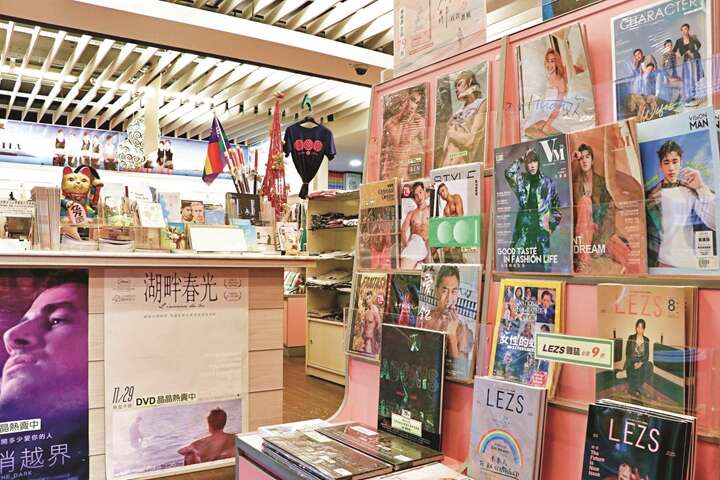 ▲At GinGin Store, you can find all kinds of books, magazines, and DVDs related to gender diversity.
▲At GinGin Store, you can find all kinds of books, magazines, and DVDs related to gender diversity.
They chose the name GinGin for their den of liberalism. Together, the two characters "Gin Gin (晶晶)," when broken down into six individual Chinese characters, actually means six suns. The six shining suns echo the six-colored rainbow which has long been a symbol for the LGBTQIA+ community, representing diversity and inclusiveness. "Each color has a variety of meanings and represents different genders and identities," says James Yang (楊平靖), current manager of the store. "It means to be flowing freely, but when gathered together, there is unity."
"The store's rainbow flags and large windows displaying LGBTQIA+ art and culture are important to show that these people are an integral part of society," says Yang. In its early days, the store's neighbors were confused and even offended by the open displays of homosexuality, but those who ran the store were undeterred. "Now, the open courtyard decorated with art and rainbow flags continues to speak out to the community, letting everyone know that this is an art space and bookstore, and that the LGBTQIA+ community is a part of society, showing the diversity and different aspects of LGBTQIA+ people."
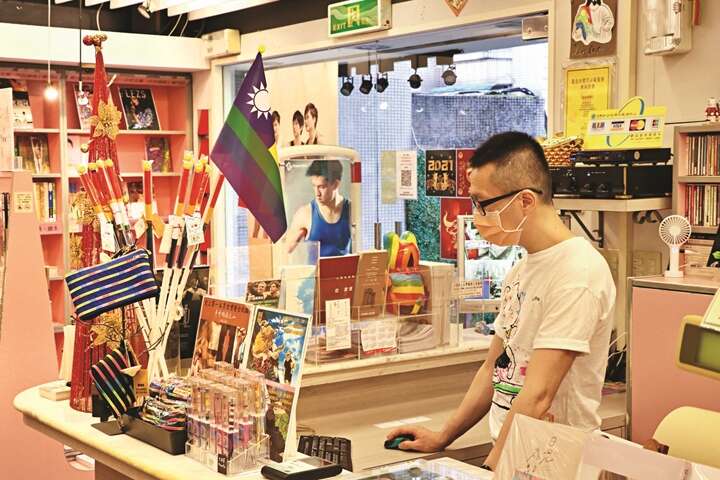 ▲Through diversification, the store manager James Yang hopes to present various aspects of the LGBTQIA+ community.
▲Through diversification, the store manager James Yang hopes to present various aspects of the LGBTQIA+ community.
After more than 20 years serving the community, GinGin's LGBTQIA+ literature and gallery of queer art have established a strong community space for people in Taipei. "Some customers have been visiting for decades," Yang says, "and regularly drop in for a chat." Meanwhile, the alleys and streets around GinGin have over time developed into Taipei's own little Gayborhood — you'll see many LGBTQ-friendly cafés around the area proudly flying the rainbow flag of equality.
Times They Are a Changin’
In its relatively short history, GinGin has seen — and been a part of — seismic changes for LGBTQIA+ people in Taiwan. While homosexual acts have never been criminalized in Taiwan, stigma and discrimination in the traditional culture persisted for many years. Fortunately, in recent years, equality campaigners have achieved a series of milestones, culminating in the country becoming the first place in Asia to legalize same-sex marriage. Taiwan's LGBTQIA+ people have slowly come out of the shadows to be loud and proud about who they are.
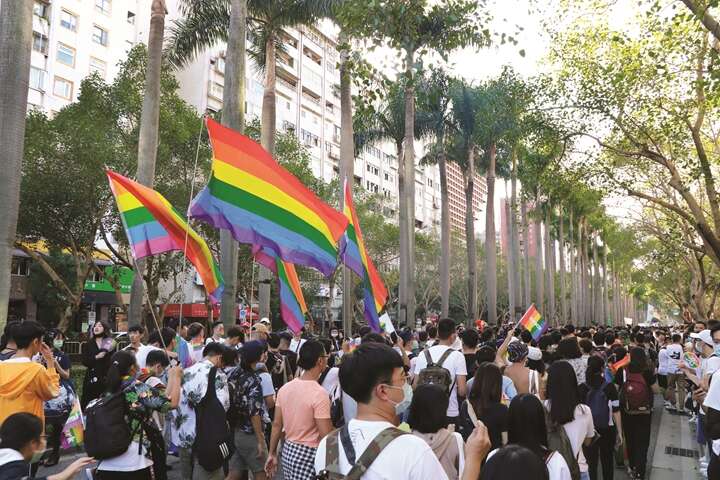 ▲ In Taipei, LGBTQIA+ communities have become more visible and active in recent years.
▲ In Taipei, LGBTQIA+ communities have become more visible and active in recent years.
Store manager Yang knows for himself how far Taiwan has come in terms of acceptance. In 1997, he was a victim of the Changde Street Incident (常德街事件).
Armed police raided popular LGBT hangouts, detained about 50 people, interrogated them all night, forced them to pose for photos, and threatened to tell family members about their sexuality. The traumatic experience prompted young Yang to join GinGin, hoping to empower the LGBTQIA+ community in Taiwan.
Yang says that before the year 2000, Taiwan's LGBTQIA+ community lived very much behind closed doors, fearing harassment and discrimination. GinGin Store quickly became a space for LGBTQIA+ folks to be themselves and mingle with other queer people. Growing access to the World Wide Web also helped. "The Internet and physical activities have gradually begun to integrate, and the originally closed community has also gradually opened up," Yang says.
In 2003, GinGin Store, along with other LGBTQIA+ activists and community members got together to launch the first Taiwan LGBT Pride parade, which would grow to become one of the oldest and largest LGBTQIA+ events in Asia. In those early years, the event aimed to show Taiwan's LGBTQIA+ community off to the rest of society. "After the parade was held every year, every participant had more of a chance to meet each other and show themselves better, and the community expanded," notes Yang.
As Taipei has emerged as the LGBTQIA+ capital of Asia, the local community has revealed the diverse styles, types, and characters of its LGBTQIA+ people. "It became easier for everyone to get to know each other, and the community was further divided into different niche groups, and the diversity and difference between LGBTQIA+ communities gradually stood out," says Yang.
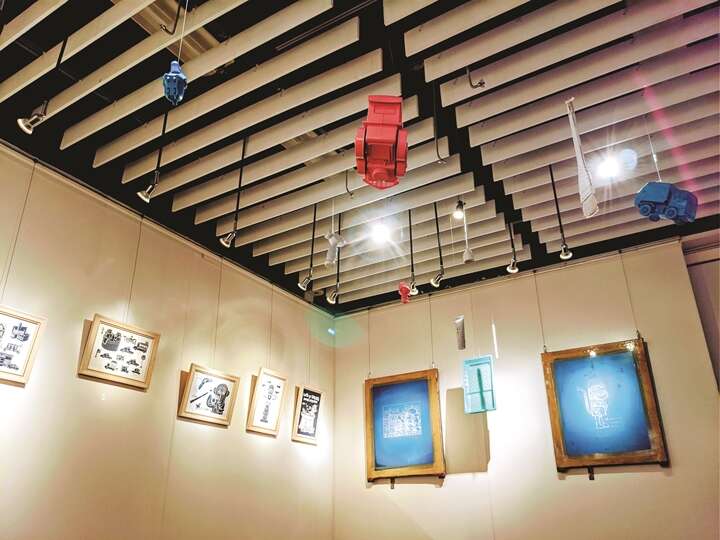 ▲Inside the bookstore, there is a small gallery which exhibits artworks from time to time. (Photo/GinGin Store)
▲Inside the bookstore, there is a small gallery which exhibits artworks from time to time. (Photo/GinGin Store)
As such, GinGin began to provide a platform for different parts of the community. All kinds of lesbian, gay, bisexual, transgender, non-binary, and queer people have had a chance to communicate with the wider LGBTQIA+ community and society as a whole. Yang now sees the bookstore as an organic platform where all sorts of folks can exchange art, culture, and ideas. Operating an independent bookstore has its challenges, Yang says, but he maintains a calm mind and tries his best to share and spread diverse ideas and values.
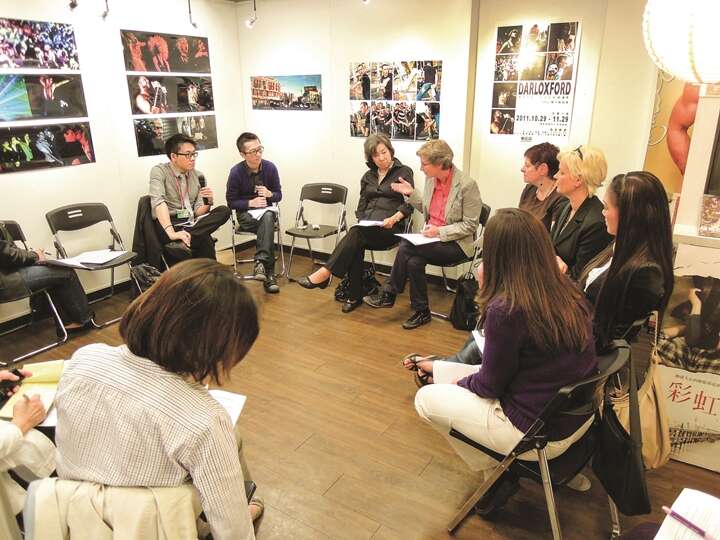 ▲GinGin Store often hosts scholars from Taiwan and abroad to exchange their ideas and experiences. (Photo/GinGin Store)
▲GinGin Store often hosts scholars from Taiwan and abroad to exchange their ideas and experiences. (Photo/GinGin Store)
Queer Capital
For Yang, Taipei has quite obviously grown to be one of the LGBTQIA+ capitals of the world. Among all his travels, he's never found a place so friendly and welcoming to different people as Taipei. Yang even believes the city easily rivals global queer capitals like Amsterdam and San Francisco.
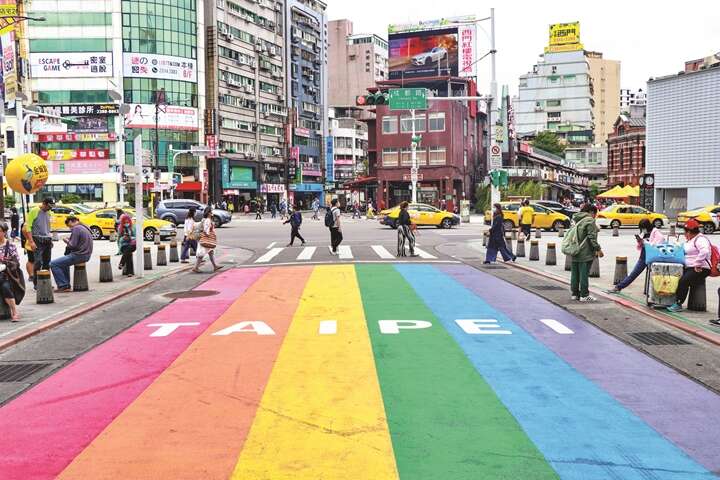 ▲With increasing awareness of gender diversity, Taipei has become an internationally recognized LGBTQ- friendly city.
▲With increasing awareness of gender diversity, Taipei has become an internationally recognized LGBTQ- friendly city.
Most visitors to Taiwan are enthralled by Taipei's buzzing nightlife. The Red House (西門紅樓), a colonial building surrounded by open-air queer bars, is perhaps one of the most popular nightspots in the city. The area is host to a number of queer shops, galleries, and art spaces, and after dark, the area is abuzz as people sipping cocktails, enjoying Drag shows, and dancing the night away. Taipei also has its own queer history walking tour and a rainbow sightseeing bus complete with drag queen hosts.
Local governments and institutions have also done their bit to make the city more LGBTQ-friendly, according to Yang. One of the examples is city hospitals like Taipei City Hospital (台北市立聯合醫院), which has trained their doctors and nurses to respect gender and sexuality diversity, and be sensitive to the needs of the LGBTQIA+ community.
📓Reading List
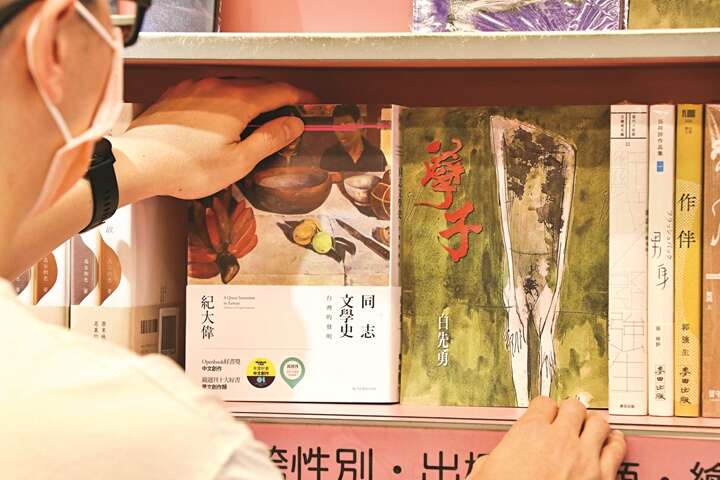
If you are keen to know more about sexuality and gender issues in Taiwan, Yang is well placed to recommend you some of the must-reads of Taiwan's LGBTQIA+ literature:
📕Crystal Boys (孽子) by Pai Hsien-yung (白先勇):
It is a story about a gay high school student who is ostracized because of his sexuality. It quickly became a bastion of Chinese-language LGBTQIA+ culture, and has been reimagined for cinema and stage.
📘Notes of a Crocodile (鱷魚手記) by Qiu Miaojin (邱妙津):
It is a coming-of-age tome exploring the lives of queer misfits in martial law-era in Taipei. The book is narrated by an introspective lesbian nicknamed "Lazi
(拉子)," and explores her tortuous attraction to a classmate. The novel's inward-looking self-inquiry of the counterculture main character made it an instant cult classic. In fact, it was so popular that "Lazi" became a slang term for lesbian in the country.
📙A Queer Invention in Taiwan: A History of Tongzhi Literature (同志文學史:台灣的發明) by Ta-wei Chi (紀大偉)
The book gives a fantastic overview of the country's queer writing from the 1950s to the early 21st century. Various types of Taiwanese queer literary works can be found in this impressive book, including long and short stories, prose, poems, dramas and so on.
GINGIN STORE
ADD 8, Al. 8, Ln. 210, Sec. 3, Roosevelt Rd., Zhongzheng Dist.
HOURS 2:00pm - 9:30pm (Closed on Tuesdays & Wednesdays)
The First LGBTQIA+ Bookstore in the Chinese-Speaking World
Author Richard Williams
Photographer GinGin Store, Taiwan Scene
Behind the Rainbow
Tucked in a small alleyway in the capital of Taiwan is GinGin Store (晶晶書庫), the first LGBTQIA+ bookstore in the Chinese-speaking world. It is hard to exaggerate the impact the store, also serving as a gallery today, has had over its 22-year history. It has built itself not only as a buzzing hub for LGBTQIA+ books and culture, but as a center for activism and an integral part of Taiwan's rapid gains in equality.
 ▲Standing in Taipei for more than 20 years, GinGin Store always welcomes clients from all over the world with its open courtyard.
▲Standing in Taipei for more than 20 years, GinGin Store always welcomes clients from all over the world with its open courtyard.As Taipei cements itself as the capital of LGBTQIA+ advancement in Asia, GinGin has become a must-visit spot for travelers, particularly when they flock to the city for the most notable LGBTQIA+ event in Asia, Taiwan LGBT Pride (台灣同志遊行).
When the GinGin team set about establishing a new space for people from across the gender and sexuality spectrum in Taipei, they hit upon Gongguan (公館), a business district just off Roosevelt Road (羅斯福路) in central Taipei, very close to a number of universities. During Taiwan's authoritarian era, in which free speech and pursuit of democracy were banned, this neighborhood emerged as a hotbed for dissent. Back then, professors and students in pursuit of academic freedom gathered in teahouses and coffee shops in the area's alleyways to cover their critical discussion. Many bookstores also popped up, selling banned books, making it an inclusive community and the perfect home for the LGBTQIA+ bookstore.
 ▲At GinGin Store, you can find all kinds of books, magazines, and DVDs related to gender diversity.
▲At GinGin Store, you can find all kinds of books, magazines, and DVDs related to gender diversity.They chose the name GinGin for their den of liberalism. Together, the two characters "Gin Gin (晶晶)," when broken down into six individual Chinese characters, actually means six suns. The six shining suns echo the six-colored rainbow which has long been a symbol for the LGBTQIA+ community, representing diversity and inclusiveness. "Each color has a variety of meanings and represents different genders and identities," says James Yang (楊平靖), current manager of the store. "It means to be flowing freely, but when gathered together, there is unity."
"The store's rainbow flags and large windows displaying LGBTQIA+ art and culture are important to show that these people are an integral part of society," says Yang. In its early days, the store's neighbors were confused and even offended by the open displays of homosexuality, but those who ran the store were undeterred. "Now, the open courtyard decorated with art and rainbow flags continues to speak out to the community, letting everyone know that this is an art space and bookstore, and that the LGBTQIA+ community is a part of society, showing the diversity and different aspects of LGBTQIA+ people."
 ▲Through diversification, the store manager James Yang hopes to present various aspects of the LGBTQIA+ community.
▲Through diversification, the store manager James Yang hopes to present various aspects of the LGBTQIA+ community.After more than 20 years serving the community, GinGin's LGBTQIA+ literature and gallery of queer art have established a strong community space for people in Taipei. "Some customers have been visiting for decades," Yang says, "and regularly drop in for a chat." Meanwhile, the alleys and streets around GinGin have over time developed into Taipei's own little Gayborhood — you'll see many LGBTQ-friendly cafés around the area proudly flying the rainbow flag of equality.
Times They Are a Changin’
In its relatively short history, GinGin has seen — and been a part of — seismic changes for LGBTQIA+ people in Taiwan. While homosexual acts have never been criminalized in Taiwan, stigma and discrimination in the traditional culture persisted for many years. Fortunately, in recent years, equality campaigners have achieved a series of milestones, culminating in the country becoming the first place in Asia to legalize same-sex marriage. Taiwan's LGBTQIA+ people have slowly come out of the shadows to be loud and proud about who they are.
 ▲ In Taipei, LGBTQIA+ communities have become more visible and active in recent years.
▲ In Taipei, LGBTQIA+ communities have become more visible and active in recent years.Store manager Yang knows for himself how far Taiwan has come in terms of acceptance. In 1997, he was a victim of the Changde Street Incident (常德街事件).
Armed police raided popular LGBT hangouts, detained about 50 people, interrogated them all night, forced them to pose for photos, and threatened to tell family members about their sexuality. The traumatic experience prompted young Yang to join GinGin, hoping to empower the LGBTQIA+ community in Taiwan.
Yang says that before the year 2000, Taiwan's LGBTQIA+ community lived very much behind closed doors, fearing harassment and discrimination. GinGin Store quickly became a space for LGBTQIA+ folks to be themselves and mingle with other queer people. Growing access to the World Wide Web also helped. "The Internet and physical activities have gradually begun to integrate, and the originally closed community has also gradually opened up," Yang says.
In 2003, GinGin Store, along with other LGBTQIA+ activists and community members got together to launch the first Taiwan LGBT Pride parade, which would grow to become one of the oldest and largest LGBTQIA+ events in Asia. In those early years, the event aimed to show Taiwan's LGBTQIA+ community off to the rest of society. "After the parade was held every year, every participant had more of a chance to meet each other and show themselves better, and the community expanded," notes Yang.
As Taipei has emerged as the LGBTQIA+ capital of Asia, the local community has revealed the diverse styles, types, and characters of its LGBTQIA+ people. "It became easier for everyone to get to know each other, and the community was further divided into different niche groups, and the diversity and difference between LGBTQIA+ communities gradually stood out," says Yang.
 ▲Inside the bookstore, there is a small gallery which exhibits artworks from time to time. (Photo/GinGin Store)
▲Inside the bookstore, there is a small gallery which exhibits artworks from time to time. (Photo/GinGin Store)As such, GinGin began to provide a platform for different parts of the community. All kinds of lesbian, gay, bisexual, transgender, non-binary, and queer people have had a chance to communicate with the wider LGBTQIA+ community and society as a whole. Yang now sees the bookstore as an organic platform where all sorts of folks can exchange art, culture, and ideas. Operating an independent bookstore has its challenges, Yang says, but he maintains a calm mind and tries his best to share and spread diverse ideas and values.
 ▲GinGin Store often hosts scholars from Taiwan and abroad to exchange their ideas and experiences. (Photo/GinGin Store)
▲GinGin Store often hosts scholars from Taiwan and abroad to exchange their ideas and experiences. (Photo/GinGin Store)Queer Capital
For Yang, Taipei has quite obviously grown to be one of the LGBTQIA+ capitals of the world. Among all his travels, he's never found a place so friendly and welcoming to different people as Taipei. Yang even believes the city easily rivals global queer capitals like Amsterdam and San Francisco.
 ▲With increasing awareness of gender diversity, Taipei has become an internationally recognized LGBTQ- friendly city.
▲With increasing awareness of gender diversity, Taipei has become an internationally recognized LGBTQ- friendly city.Most visitors to Taiwan are enthralled by Taipei's buzzing nightlife. The Red House (西門紅樓), a colonial building surrounded by open-air queer bars, is perhaps one of the most popular nightspots in the city. The area is host to a number of queer shops, galleries, and art spaces, and after dark, the area is abuzz as people sipping cocktails, enjoying Drag shows, and dancing the night away. Taipei also has its own queer history walking tour and a rainbow sightseeing bus complete with drag queen hosts.
Local governments and institutions have also done their bit to make the city more LGBTQ-friendly, according to Yang. One of the examples is city hospitals like Taipei City Hospital (台北市立聯合醫院), which has trained their doctors and nurses to respect gender and sexuality diversity, and be sensitive to the needs of the LGBTQIA+ community.
📓Reading List

If you are keen to know more about sexuality and gender issues in Taiwan, Yang is well placed to recommend you some of the must-reads of Taiwan's LGBTQIA+ literature:
📕Crystal Boys (孽子) by Pai Hsien-yung (白先勇):
It is a story about a gay high school student who is ostracized because of his sexuality. It quickly became a bastion of Chinese-language LGBTQIA+ culture, and has been reimagined for cinema and stage.
📘Notes of a Crocodile (鱷魚手記) by Qiu Miaojin (邱妙津):
It is a coming-of-age tome exploring the lives of queer misfits in martial law-era in Taipei. The book is narrated by an introspective lesbian nicknamed "Lazi
(拉子)," and explores her tortuous attraction to a classmate. The novel's inward-looking self-inquiry of the counterculture main character made it an instant cult classic. In fact, it was so popular that "Lazi" became a slang term for lesbian in the country.
📙A Queer Invention in Taiwan: A History of Tongzhi Literature (同志文學史:台灣的發明) by Ta-wei Chi (紀大偉)
The book gives a fantastic overview of the country's queer writing from the 1950s to the early 21st century. Various types of Taiwanese queer literary works can be found in this impressive book, including long and short stories, prose, poems, dramas and so on.
GINGIN STORE
ADD 8, Al. 8, Ln. 210, Sec. 3, Roosevelt Rd., Zhongzheng Dist.
HOURS 2:00pm - 9:30pm (Closed on Tuesdays & Wednesdays)
Gallery
:::
Popular articles
 The First LGBTQIA+ Bookstore in the Chinese-Speaking World (TAIPEI Quarterly 2021 Autumn Vol.25)
The First LGBTQIA+ Bookstore in the Chinese-Speaking World (TAIPEI Quarterly 2021 Autumn Vol.25) Taipei's Got Rhythm: The City's Swing Culture (TAIPEI Quarterly 2021 Autumn Vol.25)
Taipei's Got Rhythm: The City's Swing Culture (TAIPEI Quarterly 2021 Autumn Vol.25) "Lang Lang Don't Cry" Pet Halfway House & Café: Finding Their Forever Home (TAIPEI Quarterly 2021 Autumn Vol.25)
"Lang Lang Don't Cry" Pet Halfway House & Café: Finding Their Forever Home (TAIPEI Quarterly 2021 Autumn Vol.25) A Farm-To-Table Revolution: Green Dining in Taipei (TAIPEI Quarterly 2021 Autumn Vol.25)
A Farm-To-Table Revolution: Green Dining in Taipei (TAIPEI Quarterly 2021 Autumn Vol.25) Taipei: City of a Hundred Grains (TAIPEI Quarterly 2021 Autumn Vol.25)
Taipei: City of a Hundred Grains (TAIPEI Quarterly 2021 Autumn Vol.25) A Sip of Spirits: Taipei Bar Culture and Bartending (TAIPEI Quarterly 2021 Autumn Vol.25)
A Sip of Spirits: Taipei Bar Culture and Bartending (TAIPEI Quarterly 2021 Autumn Vol.25)
 The First LGBTQIA+ Bookstore in the Chinese-Speaking World (TAIPEI Quarterly 2021 Autumn Vol.25)
The First LGBTQIA+ Bookstore in the Chinese-Speaking World (TAIPEI Quarterly 2021 Autumn Vol.25)